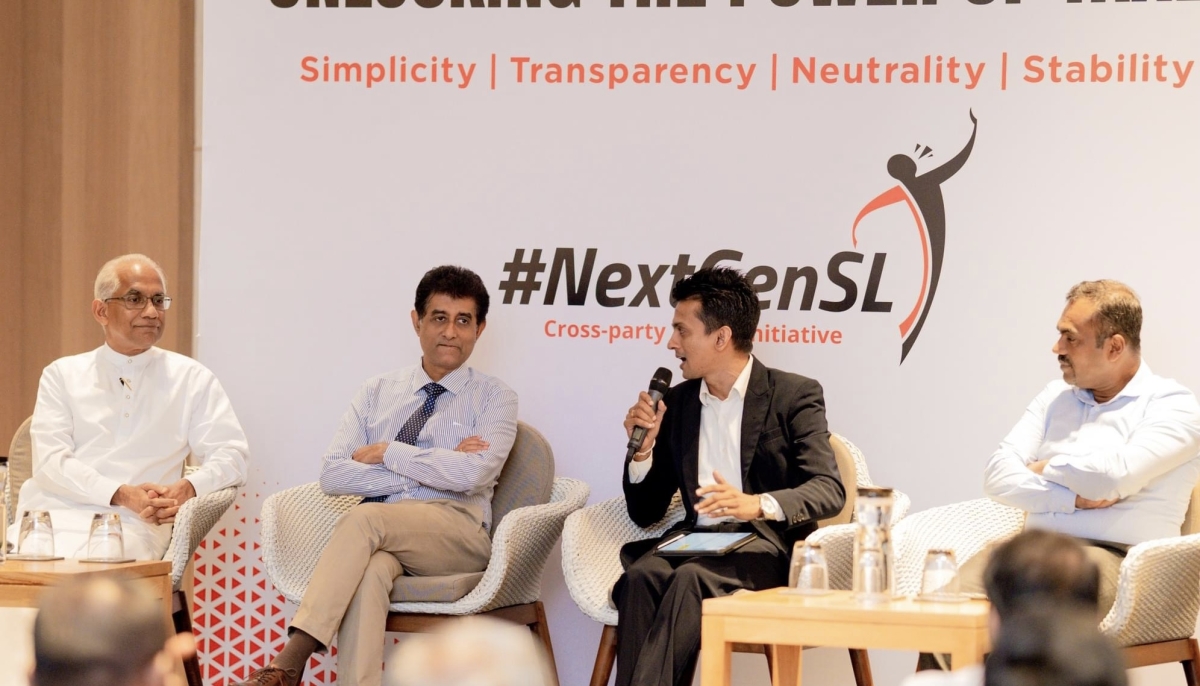In a cross-party symposium titled "Unlocking the Power of Taxes," representatives from major political factions gathered to explore the adoption of a robust tax strategy grounded in fundamental principles.
Organized by NextGenSL, a cross-party youth political platform, the event provided a platform for influential voices from both government and opposition ranks to present their views on the nation's tax framework and its future direction.
Central to the discourse was the clarification of guiding principles for a nation's tax system. The core principles highlighted were fairness, impartiality, simplicity, and consistency. Prominent speakers such as State Finance Minister Shehan Semasinghe, former State Finance Minister and SJB MP Eran Wickremaratne, Prof. Anil Jayantha from the NPP, and Duminda Hulangamuwa, Chair of the Ceylon Chamber of Commerce, all stressed the importance of avoiding the manipulation of taxes for personal or political purposes.
A key takeaway from the summit was the assertion that taxes should not be misused or leveraged to target specific individuals or groups. Instead, a foundation of honesty and transparency should underlie the tax structure.
The speakers highlighted the dangers of using taxes for personal gain or political vendettas, emphasizing the importance of maintaining the credibility of the tax system. Impartiality, another critical principle, was underscored as vital in establishing a tax structure that treats all entities equally, eliminating potential favoritism or undue influence.
A neutral tax system ensures that rules and regulations are applied uniformly to all, preventing potential discrimination. Moreover, simplicity and stability were identified as essential components of an efficient tax framework. A simplified tax structure reduces complexities, making it easier for businesses and individuals to comprehend and comply with tax regulations.
Steadfast tax policies provide confidence and certainty for long-term planning, stimulating investments and development. The speakers echoed that these foundational principles should serve as the basis of any tax strategy. By upholding fairness, impartiality, simplicity, and stability, nations can cultivate a tax structure that promotes economic progress, incentivizes investments, and fosters a fair and transparent environment for all taxpayers.
State Finance Minister Shehan Semasinghe emphasized the need for ongoing reforms within the IMF program's framework. He stressed that adherence to the program could obviate the necessity for another IMF program to stabilize the economy.
Semasinghe also discussed the urgency of establishing a centralized revenue authority and a digitized system to enhance tax collection and transparency in tax administration. He also acknowledged the significance of addressing corruption and affirmed the government's commitment to enforcing new anti-corruption laws effectively.
Duminda Hulangamuwa, Ceylon Chamber of Commerce Chair, voiced concerns about elevated tax levels in the nation. He argued that prevailing tax rates, especially income tax, are burdensome, given Sri Lanka's history of a low-tax culture.
Hulangamuwa stressed that economic expansion is crucial to bolster revenue, rather than further tax hikes. He also addressed government spending, suggesting exploring options for interest relief to alleviate the burden.
Eran Wickremaratne proposed the establishment of a tax policy committee to facilitate discussions between experts and politicians for informed tax decisions. He also advocated for a unified tax collection authority to streamline revenue collection. Wickremaratne acknowledged the political complexities associated with these ideas but emphasized the necessity of radical action to curb revenue leakage, citing instances of other nations successfully implementing similar measures.
Prof. Anil Jayantha raised concerns about the disproportionate burden of indirect taxes on low-income individuals due to disparities in tax evasion. He stressed the need to eliminate leakages in the tax system to strengthen the tax-to-GDP ratio.
Jayantha also emphasized the significance of maintaining a consistent primary balance in Sri Lanka's economy, mitigating fluctuations. In conclusion, the speakers at the forum presented diverse viewpoints on tax policy, revenue collection, corruption, and government expenditure. These deliberations aim to shed light on the challenges and possibilities that Sri Lanka faces in unlocking taxes' complete potential for economic growth and stability.










